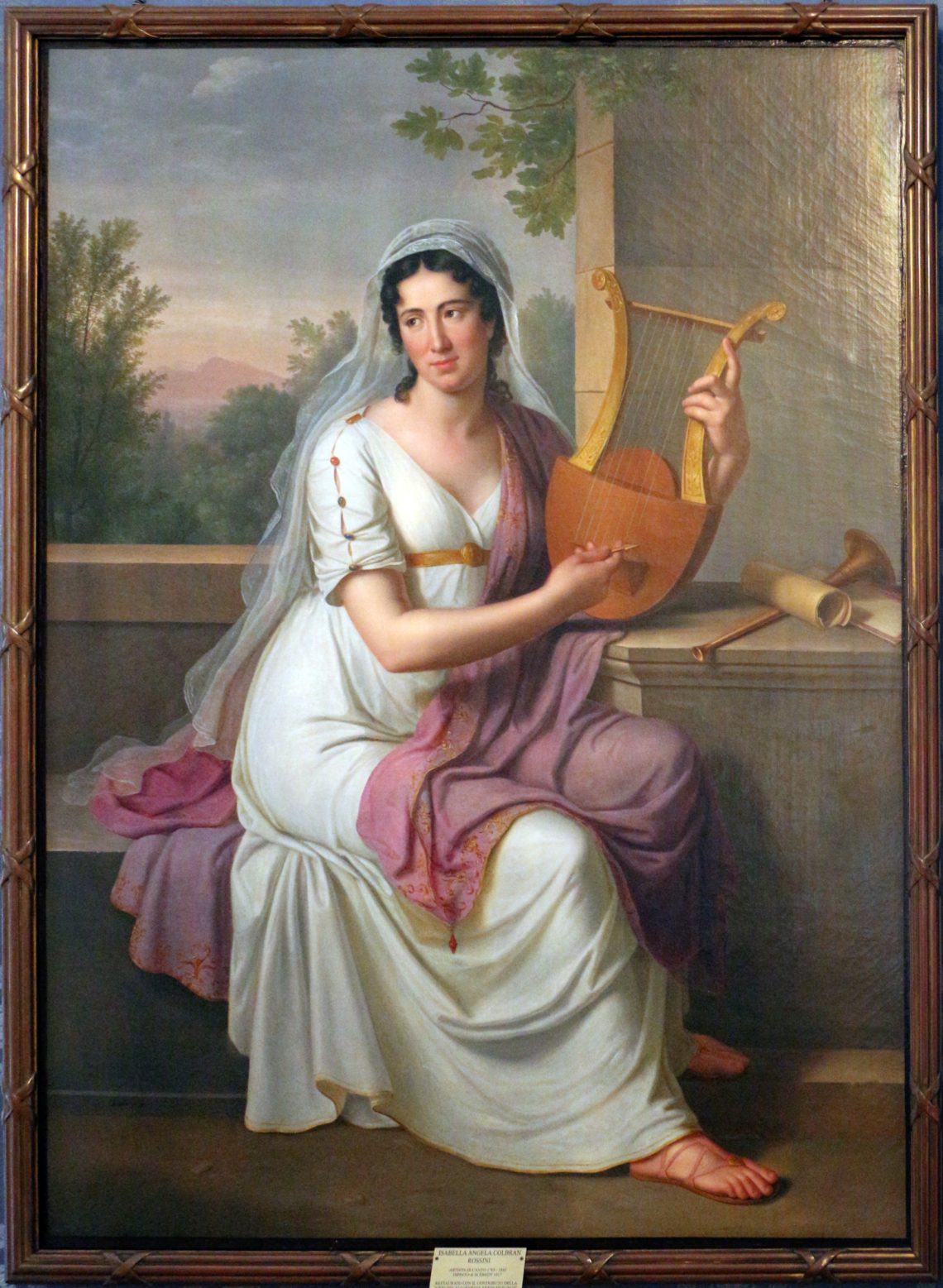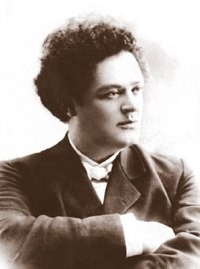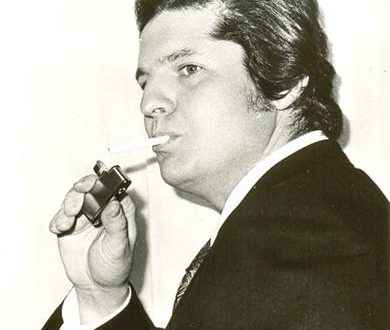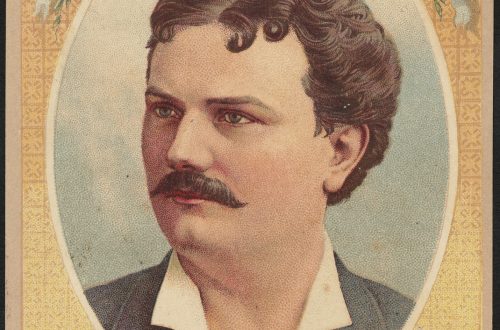
Isabella Colbran |
Isabella Colbran
Colbrand had a rare soprano – the range of her voice covered almost three octaves and in all registers was distinguished by amazing evenness, tenderness and beauty. She had a delicate musical taste, the art of phrasing and nuance (she was called the “black nightingale”), she knew all the secrets of bel canto and was famous for her acting talent for tragic intensity.
With particular success, the singer created romantic images of strong, passionate, deeply suffering women, such as Elizabeth of England (“Elizabeth, Queen of England”), Desdemona (“Othello”), Armida (“Armida”), Elchia (“Moses in Egypt”) , Elena (“Woman from the Lake”), Hermione (“Hermione”), Zelmira (“Zelmira”), Semiramide (“Semiramide”). Among other roles played by her, one can note Julia (“The Vestal Virgin”), Donna Anna (“Don Giovanni”), Medea (“Medea in Corinth”).
Isabella Angela Colbran was born on February 2, 1785 in Madrid. The daughter of a Spanish court musician, she received good vocal training, first in Madrid from F. Pareja, then in Naples from G. Marinelli and G. Cresentini. The latter finally polished her voice. Colbrand made her debut in 1801 on a concert stage in Paris. However, the main successes awaited her on the stages of Italian cities: since 1808, Colbrand was a soloist in the opera houses of Milan, Venice and Rome.
Since 1811, Isabella Colbrand has been a soloist at the San Carlo Theater in Naples. Then the first meeting of the famous singer and promising composer Gioacchino Rossini took place. Rather, they had known each other before, when one day in 1806 they were accepted for singing merit at the Academy of Music of Bologna. But then Gioacchino was only fourteen …
A new meeting took place only in 1815. Already famous, Rossini came to Naples to stage his opera Elisabeth, Queen of England, where Colbrand was to perform the title role.
Rossini was immediately subdued. And no wonder: it was difficult for him, a connoisseur of beauty, to resist the charms of a woman and an actress, whom Stendhal described in these words: “It was a beauty of a very special kind: large facial features, especially advantageous from the stage, tall, fiery, like a Circassian woman, eyes , mop of blue-black hair. All this was joined by a heartfelt tragic game. In the life of this woman, there were no more virtues than some owner of a fashion store, but as soon as she crowned herself with a diadem, she immediately began to arouse involuntary respect even from those who had just talked to her in the lobby … “
Colbrand was then at the peak of her artistic career and in the prime of her feminine beauty. Isabella was patronized by the famous impresario Barbaia, whose cordial friend she was. Why, she was patronized by the king himself. But from the very first meetings related to the work on the role, her admiration for the cheerful and charming Gioacchino grew.
The premiere of the opera “Elizabeth, Queen of England” took place on October 4, 1815. Here is what A. Frakcaroli writes: “It was a solemn performance on the occasion of the name day of the Crown Prince. The huge theater was packed. The tense, pre-stormy atmosphere of the battle was felt in the hall. In addition to Colbran, Signora Dardanelli was sung by the famous tenors Andrea Nozari and Manuel Garcia, a Spanish singer who had a lovely little daughter, Maria. This girl, as soon as she began to babble, immediately began to sing. These were the first vocalizations of the one who was destined to later become the famous Maria Malibran. At first, until the duet of Nozari and Dardanelli sounded, the audience was hostile and stern. But this duet melted the ice. And then, when a wonderful minor melody was performed, enthusiastic, expansive, temperamental Neapolitans were no longer able to restrain their feelings, forgot about their prejudice and prejudice and burst into an incredible ovation.
The role of the English Queen Elizabeth became, according to contemporaries, one of the best creations of Colbran. The same Stendhal, who by no means had sympathy for the singer, was forced to admit that here she surpassed herself, demonstrating the “incredible flexibility of her voice” and the talent of the “great tragic actress.”
Isabella sang the exit aria in the finale – “Beautiful, noble soul”, which was monstrously difficult to perform! Someone rightly remarked then: the aria was like a box, opening which Isabella was able to demonstrate all the treasures of her voice.
Rossini was not rich then, but he could give his beloved more than diamonds – parts of romantic heroines, written especially for Colbrand, based on her voice and appearance. Some even reproached the composer for “sacrifice the expressiveness and drama of situations for the sake of the patterns that Colbrand embroidered,” and thus betrayed himself. Of course, now it is quite obvious that these reproaches were unfounded: inspired by his “charming girlfriend”, Rossini worked tirelessly and selflessly.
A year after the opera Elizabeth, Queen of England, Colbrand sings Desdemona for the first time in Rossini’s new opera Otello. She stood out even among the great performers: Nozari – Othello, Chichimarra – Iago, David – Rodrigo. Who could resist the magic of the third act? It was a storm that crushed everything, literally tearing the soul apart. And in the midst of this storm – an island of calm, quiet and charming – “The Song of the Willow”, which Colbrand performed with such feeling that it touched the whole audience.
In the future, Colbrand performed many more Rossinian heroines: Armida (in the opera of the same name), Elchia (Moses in Egypt), Elena (Lady of the Lake), Hermione and Zelmira (in the operas of the same name). Her repertoire also included soprano roles in the operas The Thieving Magpie, Torvaldo and Dorlisca, Ricciardo and Zoraida.
After the premiere of “Moses in Egypt” on March 5, 1818 in Naples, the local newspaper wrote: “It seemed that “Elizabeth” and “Othello” did not leave signora Colbran hopes for new theatrical laurels, but in the role of the tender and unhappy Elchia in “Moses” she showed itself even higher than in Elizabeth and Desdemona. Her acting is highly tragic; her intonations sweetly penetrate the heart and fill it with bliss. In the last aria, which, in truth, in its expressiveness, in its drawing and color, is one of the most beautiful of our Rossini, the souls of the listeners experienced the strongest excitement.
For six years, Colbrand and Rossini got together, then parted again.
“Then, during the time of The Lady of the Lake,” writes A. Frakkaroli, “which he wrote especially for her, and which the public booed so unfairly at the premiere, Isabella became very affectionate with him. Probably for the first time in her life she experienced a quivering tenderness, a kind and pure feeling that she had not known before, an almost maternal desire to console this big child, who first revealed herself to her in a moment of sadness, throwing off the usual mask of a mocker. Then she realized that the life she had led before no longer suited her, and she revealed her feelings to him. Her sincere words of love gave Gioacchino a previously unknown great joy, because after the inexpressibly bright words that his mother spoke to him in childhood, he usually heard from women only the usual affectionate words expressing sensual curiosity in a fit of quickly flashing and just as quickly fading passion. Isabella and Gioacchino began to think that it would be nice to unite in marriage and live without parting, working together in the theater, which so often brought them the honors of victors.
Ardent, but practical, the maestro did not forget about the material side, finding that this union is good from all points of view. He received money that no other maestro had ever earned (not very much, because the composer’s work was poorly rewarded, but, in general, enough to live quite well). And she was rich: she had estates and investments in Sicily, a villa and lands in Castenaso, ten kilometers from Bologna, which her father bought from a Spanish college during the French invasion and left her as a legacy. Its capital was forty thousand Roman scudos. In addition, Isabella was a famous singer, and her voice brought her a lot of money, and next to such an illustrious composer, who is torn to pieces by all the impresario, her income will increase even more. And the maestro also provided his operas with a great performer.”
The marriage took place on March 6, 1822 in Castenaso, near Bologna, in the chapel of the Virgine del Pilar in the Villa Colbran. By that time, it became clear that the singer’s best years were already behind her. The vocal difficulties of bel canto became beyond her strength, false notes are not uncommon, the flexibility and brilliance of her voice disappeared. In 1823, Isabella Colbrand presented to the public for the last time Rossini’s new opera, Semiramide, one of his masterpieces.
In “Semiramide” Isabella received one of “her” parties – the party of the queen, the ruler of opera and vocals. Noble posture, impressiveness, the extraordinary talent of the tragic actress, extraordinary vocal abilities – all this made the performance of the part outstanding.
The premiere of “Semiramide” took place in Venice on February 3, 1823. There was not a single empty seat left in the theater, the audience crowded even in the corridors. It was impossible to move in the boxes.
“Each issue,” the newspapers wrote, “was lifted to the stars. The stage of Marianne, her duet with Colbrand-Rossini and the stage of Galli, as well as the lovely tercet of the three above-named singers, made a splash.
Colbrand sang in “Semiramide” while still in Paris, trying with amazing skill to hide too obvious flaws in her voice, but this brought her great disappointment. “Semiramide” was the last opera in which she sang. Shortly thereafter, Colbrand stopped performing on stage, although she still appeared occasionally in salon concerts.
To fill the resulting void, Colbran began to play cards and became very addicted to this activity. This was one of the reasons that the Rossini spouses were increasingly moving away from each other. It became difficult for the composer to endure the absurd nature of his spoiled wife. In the early 30s, when Rossini met and fell in love with Olympia Pelissier, it became obvious that a breakup was inevitable.
Colbrand spent the rest of her days in Castenaso, where she died on October 7, 1845, completely alone, forgotten by everyone. Forgotten are the songs that she composed a lot in her life.





